World
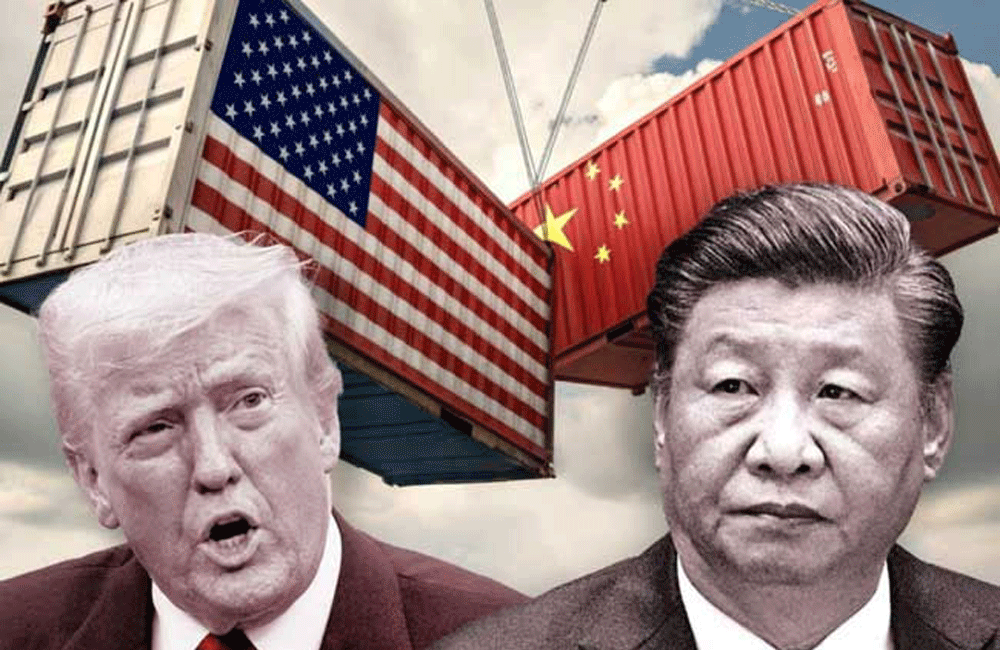
China to increase tariffs on US goods to 125% up from 84%
Beijing on Friday increased its tariffs on U.S. imports to 125%, hitting back against U.S. President Donald Trump's decision to hike duties on Chinese goods to 145%, raising the stakes in a trade war that threatens to up-end global supply chains.
The hike comes after the White House kept the pressure on the world's No.2 economy and second-biggest provider of U.S. imports by singling it out for an additional tariff increase, having paused most of the "reciprocal" duties imposed on dozens of other countries.
(Reuters)
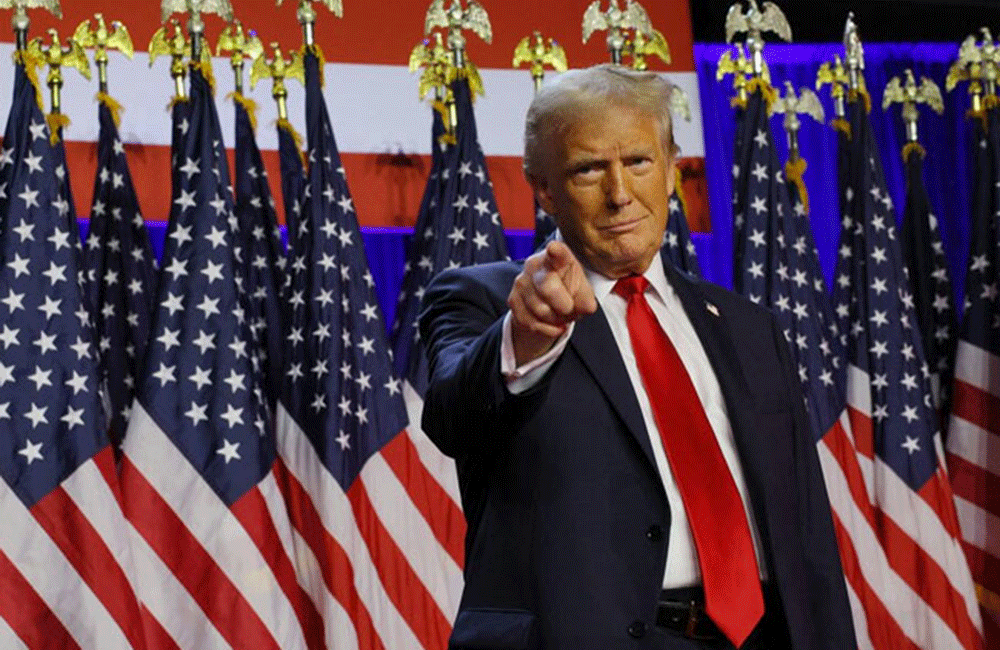
Trump declares victory on cusp of historic White House comeback
Donald Trump has declared victory over Kamala Harris in the US presidential election, as he stands on the cusp of a historic political comeback.
The Republican told ecstatic supporters in Florida that they would usher in “a new golden age for America”.
He needs just one more state to officially take him over the winning threshold of 270 electoral college votes, according to projections by the BBC's US partner CBS. He would be the first former president to return to the White House in more than 130 years.
In more good news for Trump, his party is projected to win majority control of the Senate.
Accompanied by his family and his pick for vice-president, JD Vance, Trump told supporters in West Palm Beach on Wednesday morning: "This will truly be the golden age of America - that's what we have to have.
"This is a magnificent victory for the American people that will allow us to make America great again."
Elon Musk, the world's richest man and Trump mega-donor, was with the Republican candidate as the results came in. The billionaire posted increasingly positive message on X - which he owns - throughout the night.
Trump could be on track for a clean sweep of the seven swing states needed to win the White House and he might even win the overall popular vote nationally - a feat he fell short of when first elected in 2016.
He is projected to win Pennsylvania, North Carolina and Georgia. CBS says Wisconsin is leaning towards the Republican and he is ahead in the other so-called Rust Belt state of Michigan. Certified final results take days to come.
Trump also has a solid lead in Nevada, while the race remains tight in the other Sun Belt battleground of Arizona.
As expected, Trump has swept conservative strongholds from Florida to Idaho, while Harris won liberal states from New York to California, CBS projects.
The Democrat had been expected to address a crowd on election night at Howard University in Washington DC, where she was an undergraduate, but it emerged after midnight that she would not appear. Harris has made no statement so far.
Following the announcement by Democratic campaign co-chairman Cedric Richmond, the crowd all but disappeared from Harris HQ at the historically black college.
CBS exit poll data suggests Vice-President Harris – who was hoping to become America’s first woman president and campaigned heavily for abortion rights - may have under-performed with women.
Some 54% of female voters cast their ballots for her, the numbers indicate. But Joe Biden won the support of 57% of women in 2020.
Black and Latino voters also appeared slightly less likely to support Harris than they were to back Biden four years ago, according to Associated Press exit poll data.
Instead, Trump swept the key battleground states and would become America's oldest president. The Republican has refused to release his medical records, despite spending much of his early campaign attacking President Joe Biden's advancing age.
Congress is also up for grabs in the election.
In what would be a major boost for a Trump presidency, CBS projects Republicans will win control of the Senate after wresting two seats in West Virginia and Ohio from the Democrats and seeing off a competitive challenger in Texas.
Neither party seemed to have an overall edge in the House, which Republicans narrowly control.
However, control of Congress would allow Trump a relatively easy path to pass his key proposals through the legislature - including his pledges to enforce mass deportations of illegal migrants and to enact sweeping tax cuts.
Around 86 million voters cast their ballots early amid one of the most turbulent campaigns in recent American history.
Harris, 60, only became the Democratic Party candidate in July, after President Joe Biden withdrew from the race under pressure from within the party.
Trump, 78, was the target of two assassination plots - narrowly avoiding a sniper's bullet in Pennsylvania in July.
His victory marks a dramatic reversal in fortunes for the billionaire. He left office in 2021 with low approval ratings and the country reeling following the Capitol riot - which saw his supporters attempt to block to certification of his loss to Joe Biden.
He narrowly avoided conviction in the Senate after becoming the first president to be impeached twice by the US House. The Republican leader in the Senate - Mitch McConnell - said Trump had "provoked" his supporters into attacking the Capitol.
e later became the first former president to be convicted of a criminal offence, after being found guilty on 34 counts of falsifying business records.
But he announced his return to frontline politics in November 2022, beginning the campaign that would see him sweep aside challengers in the Republican primaries and claim his party's nomination for president.
Attention in the coming days will turn to the make-up of his potential cabinet, with senior advisers telling CBS that the Trump transition team are to meet at West Palm Beach in the coming days.
At his victory rally, Trump hinted that Robert F Kennedy Jr - a former Democrat and vaccine-sceptic - would be handed a key healthcare role.
"He's to help make America healthy again," Trump said. "He wants to do some things, and we're going to let him go to it."
Both sides have armies of lawyers on standby for legal challenges on and after election day.
Law enforcement agencies nationwide were on high alert for potential violence, but it has been peaceful so far.
About 30 bomb threats hoaxes targeted election-related locations nationwide on Tuesday, more than half of them in the state of Georgia alone, reports CBS.
(bbc.com)

Earthquake of magnitude 6.0 strikes Japan’s Kyushu
Earthquake of magnitude 6.0 strikes Japan’s Kyushu, the Japan Meteorological Agency said that the earthquake struck at 7.34 (local time) at a depth of 40km.
The earthquake comes days after a 7.7-magnitude earthquake flattened buildings across Myanmar, killing more than 2,800 people and making thousands more homeless.
On Monday, a report by the Japanese government said that a “megaquake” and subsequent tsunami could cause as many as 298,000 deaths in Japan and damage costing up to $2 trillion.
A “megaquake” refers to an extremely powerful earthquake, typically magnitude 8 or higher, capable of causing widespread destruction and potentially triggering a tsunami.
The updated figures revise a 2014 estimate that assessed the potential impact of a massive earthquake along the Nankai Trough, an 800-kilometer (500-mile) undersea trench stretching from Shizuoka, west of Tokyo, to the southern tip of Kyushu.
This trench is where the Philippine Sea tectonic plate is gradually subducted beneath the continental plate on which Japan rests. Over time, the plates become locked, accumulating energy that is eventually released in the form of major earthquakes.
In August last year, the Japan Meteorological Agency (JMA) issued its first-ever “megaquake advisory” under post-2011 rules, following a magnitude 7.1 earthquake in southern Japan that injured 14 people.
Earlier in January of the same year, a massive earthquake struck Japan’s Noto Peninsula, killing at least 260 people, including 30 quake-related deaths.
Source: The Hindustan Times
--Agencies
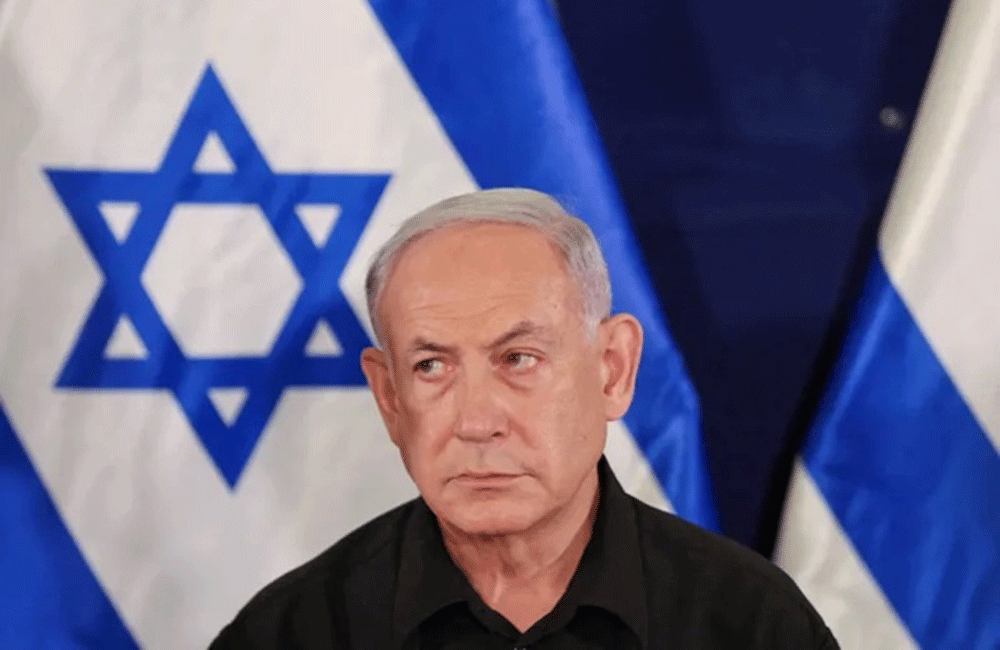
Israel PM’s house attacked by Drone
(AlJazeera/CNN) Israeli Prime Mimister’s office says Prime Minister Benjamin Netanyahu’s house in Caesarea, north of Tel Aviv, hit by a Hezbollah drone.
The prime minister’s spokeswoman confirmed the attack, saying Netanyahu and his wife were not home at the time of the strike.
There were no casualties in the attack, the spokesman added.
In an earlier statement, Israel‘s military said a drone launched from Lebanon “hit a structure in the area of Caesarea.”
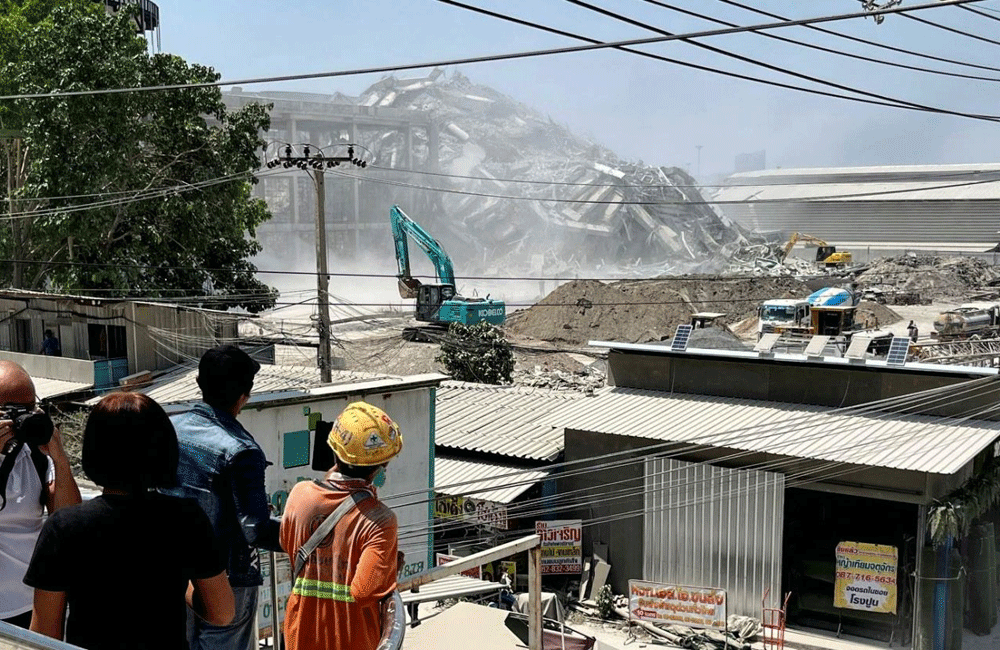
Bangkok Declared Emergency Zone After Powerful Quake
The Thailand prime minister has declared Bangkok an emergency zone after a 7.4-magnitude quake rocked Bangkok this afternoon.
Paetongtarn Shinawatra was in Phuket province when the tremor rocked the capital.
At least a worker was killed and 43 others missing when a building under construction in Bangkok collapsed this afternoon.
A viral video clip showed the under-construction building collapsing in Chatuchak district, scattering debris around the area.
The Thai Meteorological Department reported that the midday tremor was a shallow one, at a depth of 10 kilometers, with its epicenter in neighboring Myanmar.
A viral video clip showed the under-construction building collapsing in Chatuchak district, scattering debris around the area.
Another video clip showed water from a rooftop swimming pool of a high-rise condominium splashing down.
The tremor could be felt even on the second floor of the Thai PBS World office on Vibhavadi Rangsit Road.
Telephone and internet signals were also disrupted during and after the quake.
MRT’s blue and purple lines in Bangkok suspended their services shortly after the quake.
Witnesses said members of communities huddled together to discuss what they described as an unprecedented experience.
People evacuated buildings, with even those living in one- or two-story homes running out of their residences and refusing to go back inside.
At a Bangkok café, ceiling lights swayed, and many doors opened and closed by themselves.
Car drivers said they felt the streets move. “It was so scary,” one said. “I thought my swinging-house syndrome (vertigo) was coming back to attack me.”
People called friends and family members to check about their well-beings. Internet or phone disruptions amplified fear and worries.
Source: Thai PBS

A terrible train accident in Tamil Nadu
A passenger train going from Mysore to Darbhanga has collided with a stationary goods train in the Tiruvallur district, near Chennai.
The train entered a loop line instead of the main line, following which at least 12 coaches derailed, leaving several passengers injured.
The Tiruvallur District Collector said that 1,360 passengers were on board.
19 of the passengers are reported to be injured, and of them, four suffered severe injuries.
They were immediately rushed to a nearby hospital.
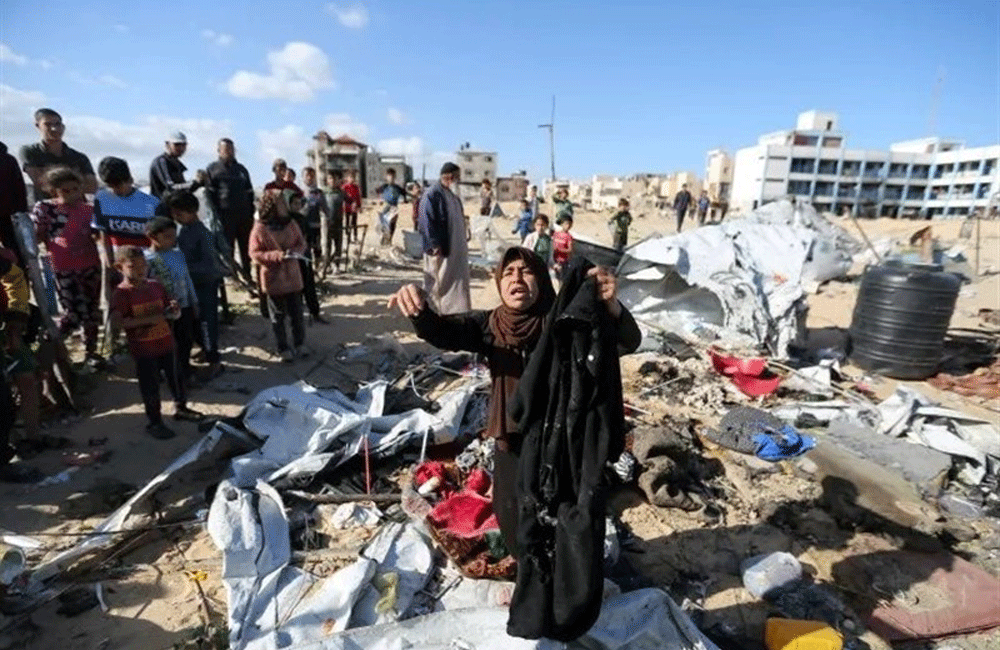
Israel keeps pounding Gaza for second day
At least 24 Palestinians have been killed in Israeli air attacks across the Gaza Strip overnight and this morning.
Israeli attacks in Gaza have rendered about 85 percent of the enclave’s water and sanitation facilities fully or partially inoperative, according to the Palestinian Central Bureau of Statistics.
As a result, Gaza’s water supply has fallen by 65 percent since the start of the war, leaving residents with just three to five litres (0.7 to 1.3 gallons) per person daily, reports the bureau.
This falls far below the World Health Organization’s minimum humanitarian standard for emergencies, set at 15 litres (nearly 4 gallons) per person per day.
Israel’s Foreign Ministry has accused UN chief Antonio Guterres of “moral bankruptcy” after he said he was “outraged” by renewed Israeli air strikes in Gaza.
“We are outraged that you [Antonio Guterres] are the Secretary-General of the UN,” Foreign Ministry spokesman Oren Marmorstein wrote on X.
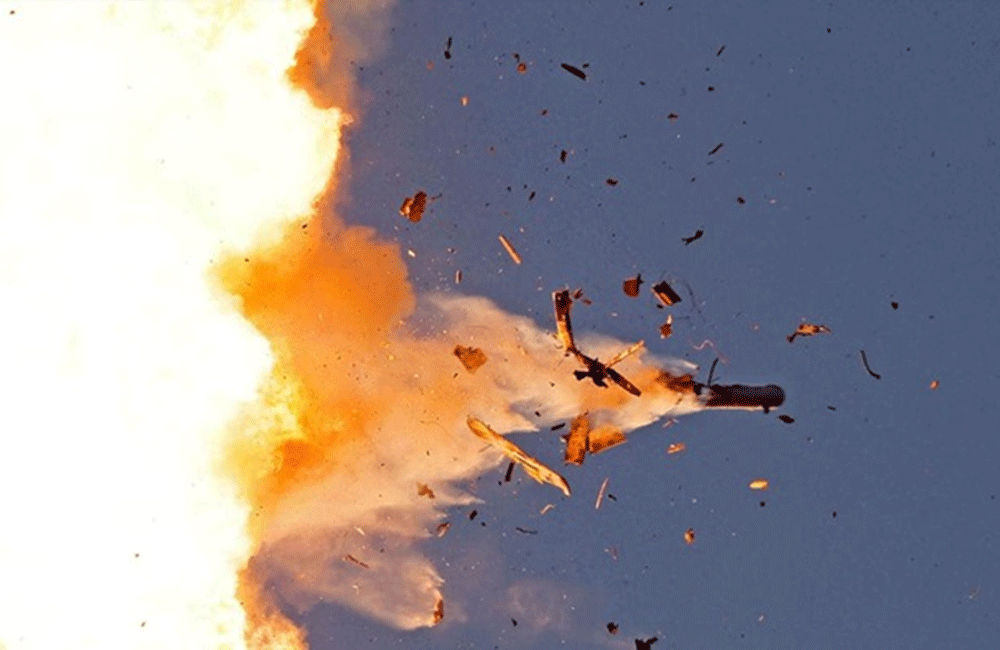
Israeli Defence Minister declares 48-hour State of Emergency
Israeli Defence Minister Yoav Gallant announced a 48-hour nationwide state of emergency from 06:00 am (0300 GMT) Sunday, after the Israeli military launched what it called pre-emptive strikes in Lebanon.
“The declaration on the state of emergency enables the IDF (Israeli military) to issue instructions to the citizens of Israel, including limiting gatherings and closing sites where it may be relevant,” Gallant said, in a statement issued by his office.
“I am convinced that there is a high probability of an attack against the civilian population in areas of the country where the declaration of a special situation did not apply,” he said, referring to previous local emergency measures.
“I hereby declare a special situation on the home front in other areas of the country. The situation is valid for 48 hours starting at 6:00 am,” Gallant said.
In a separate statement, the defence ministry said Gallant briefed US Secretary of Defence Lloyd Austin on the overall situation.
“We have conducted precise strikes in Lebanon in order to thwart an imminent threat against the citizens of Israel,” Gallant told Austin, according to the statement.
“We are closely following developments in Beirut, and we are determined to use all the means at our disposal in order to defend our citizens.”
The statement also said that the two leaders “discussed the importance of avoiding regional escalation”. (AFP)
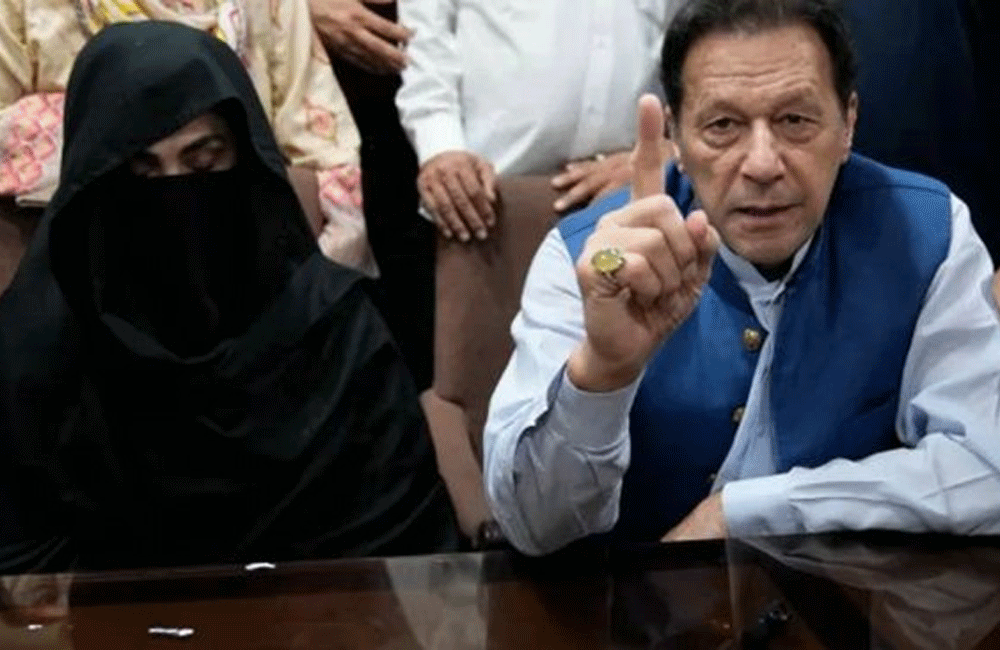
x-PM Imran Khan, wife sentenced to jail in corruption case
Pakistan’s former Prime Minister Imran Khan was today sentenced to 14 years in prison, and his wife Bushra Bibi to seven years in a case related to the misuse of authority and corruption involving Khan’s Al-Qadir University Project Trust.
Khan was also given a fine of 1 million Pakistani rupees ($3,500), while Bibi was fined half that amount.
An accountability court operating from Adiala Jail in Rawalpindi, where Khan has been imprisoned since August 2023, had reserved its verdict in December last year and deferred the announcement three times. Bibi was arrested from the court premises.
Khan, who did not appear before the court on January 13 when the decision was delayed for a third time, had earlier claimed the delays were an attempt to “pressurise” him.
This marks the fourth major case in which the former prime minister has been convicted.
Three earlier convictions, announced in January last year, were related to selling state gifts, leaking state secrets, and unlawful marriage, all of which were overturned or suspended. Despite this, Khan remains behind bars, with dozens of cases pending against him – a situation he describes as a political witch-hunt.
Khan was first arrested in connection with the Al-Qadir Trust case in May 2023, spending less than two days in detention. However, the arrest led to nationwide protests during which Khan’s supporters rioted in multiple cities.
Faisal Fareed Chaudhry, Khan’s lawyer, condemned the decision as a continuation of “bogus persecution” against Khan and his wife.

Lawmakers Choose a Dynasty’s Young Heir to Lead Thailand
Thailand's parliament voted on Friday (Aug 16) for the daughter of divisive tycoon Thaksin Shinawatra to become the country's next prime minister.
Political newcomer Paetongtarn Shinawatra, 37, will become Thailand's second female prime minister and the third Shinawatra to hold the top post, a surprise that could prolong a power struggle and reignite political turmoil.
Thailand's Constitutional Court on Wednesday dismissed Srettha Thavisin as prime minister, in what was the latest blow for Pheu Thai, the populist juggernaut of the billionaire Shinawatra family that has locked horns for two decades with Thailand's influential establishment and royalist military.
Srettha was the movement's fourth prime minister to be removed by a court ruling and his downfall suggests a breakdown in an uneasy detente between Thaksin and his enemies in the conservative elite and military old guard, which had enabled the tycoon's return from self-exile in 2023 and ally Srettha to become premier the same day.
Pheu Thai's decision to rally behind Paetongtarn came as a surprise to some political analysts, who had expected heavyweight Thaksin, 75, Pheu Thai's founder and figurehead, would delay his political dynasty and shield his youngest daughter from Thailand's cut-throat politics for a little longer.
Pheu Thai and its predecessors have borne the brunt of the tumult, with two Shinawatra governments ousted in coups in a long-running grudge match that began when former telecoms magnate Thaksin tried to upend established patronage networks, angering elites with far-reaching connections.
Thaksin returned to Thailand last August from 15 years in self-exile on the same day Srettha took power in an alliance with pro-military parties previously staunchly opposed to the tycoon ex-premier and his followers.
The timing seemed to suggest a truce in the long-standing feud as both sides sought to see off the threat posed by the newer Move Forward Party (MFP), which won the popular vote in last year's election.
It was later blocked from forming a government.
Uncertainty about political upheaval could add more strain to an underperforming economy that Srettha had hoped to revive with a raft of stimulus measures, some that could now be in question, including his vaunted plan to give 10,000 baht (US$285) handouts to 50 million people.
The case against Srettha was brought by 40 former senators appointed by the military junta that ousted an elected Pheu Thai government in a 2014 coup.
The senate also played a crucial role in blocking the MFP after last year's elections.
Senators alarmed by MFP's pledges to reform lese majeste laws and break up powerful business monopolies refused to endorse its then-leader Pita Limjaroenrat as prime minister, and the party was forced into opposition.
The Constitutional Court dissolved the MFP last week and banned Pita and its main officials from politics for 10 years.
Srettha was dismissed over the appointment of Pichit Chuenban, a former lawyer associated with Thaksin.
Pichit, sentenced to six months in jail in 2008 for a graft-related offence, quit the Cabinet after the case was filed in a bid to save Srettha but the court pressed ahead with it.
CNA
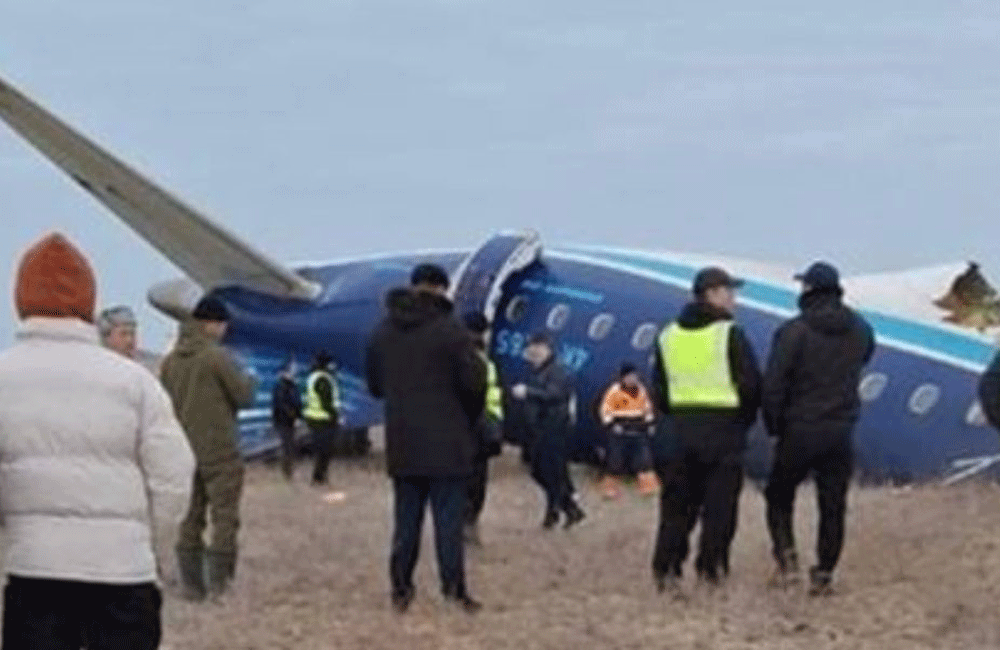
Azerbaijan Airlines plane crashes in Kazakhstan
An Azerbaijani airliner with 67 people onboard crashed Wednesday in the Kazakhstani city of Aktau, leaving at least 32 survivors, according to officials. More than 30 people are likely dead.
Kazakhstan’s Emergency Ministry said in a Telegram statement that those on board included five crew. At least 29 have been hospitalized, the ministry told Russia’s state news agency RIA Novosti.
Russian news agency Interfax quoted medical workers as saying that four bodies have been recovered and emergency workers at the scene as saying that both pilots, according to a preliminary assessment, died in the crash.
The Embraer 190 aircraft made an emergency landing 3 km from the city, Azerbaijan Airlines said earlier.
Kazakhstan’s Emergency Ministry initially said 25 people survived the crash, later revising that number to 27, 28, and then 29 as the search and rescue operation continued at the site of the crash, bringing the supposed death toll down.
Prosecutor General’s Office in Azerbaijan later reported that at least 32 people survived the crash, adding that the number wasn’t final.
The number of survivors could mean that over 30 people may be dead.
The plane was originally scheduled to travel from the Azerbaijani capital of Baku to the Russian city of Grozny in the North Caucasus. According to Azerbaijan Airlines, 37 passengers were Azerbaijani citizens. There were also 16 Russian nationals, six Kazakhstani and three Kyrgyzstani citizens, it said.
RIA Novosti quoted Russia’s civil aviation authority, Rosaviatsia, as saying that preliminary information showed that the pilot had chosen to divert to Aktau after a bird strike on the aircraft led to “an emergency situation on board”.
Mobile phone footage circulating online appeared to show the aircraft making a steep descent before smashing into the ground in a fireball. Other footage showed part of its fuselage ripped away from the wings and the rest of the aircraft, lying upside in the grass. The footage corresponded to the plane’s colors and its registration number.
Some of the videos posted on social media showed survivors dragging fellow passengers away from the wreckage of the plane.
Flight-tracking data from FlightRadar24.com showed the aircraft making what appeared to be a figure-right once nearing the airport in Aktau, its altitude moving up and down substantially over the last minutes of the flight before impacting the ground.
FlightRadar24 separately said in an online post that the aircraft had faced “strong GPS jamming” which “ made the aircraft transmit bad ADS-B data”, referring to the information that allows flight-tracking websites to follow planes in flight. Russia has been blamed in the past for jamming GPS transmissions in the wider region.
Embraer did not immediately respond to a request for comment early Wednesday morning. In a statement, Azerbaijan Airlines said it would keep members of the public updated and changed its social media banners to solid black.
Azerbaijan’s state news agency, Azertac, said that an official delegation consisting of Azerbaijan’s emergency situations minister, the country’s deputy general prosecutor, and the vice president of Azerbaijan Airlines had been dispatched to Aktau to conduct an “on-site investigation”.
Azerbaijani President Ilham Aliyev, who had been traveling to St Petersburg, returned to Azerbaijan on hearing news of the crash, the president’s press service said. Aliyev was due to attend an informal meeting of leaders of Commonwealth of Independent States, a bloc of former Soviet countries founded after the collapse of the Soviet Union.
Aliyev expressed his condolences to the families of the victims in a statement on social media. “It is with deep sadness that I express my condolences to the families of the victims and wish a speedy recovery to those injured,” he wrote.
Russian President Vladimir Putin spoke to Aliyev on the phone and expressed his condolences, Kremlin spokesman Dmitry Peskov told reporters.
Both Kazakhstani and Azerbaijani authorities were investigating the crash. Embraer told The Associated Press in a statement that the company is “ready to assist all relevant authorities.”
Source: AP
--Agencies
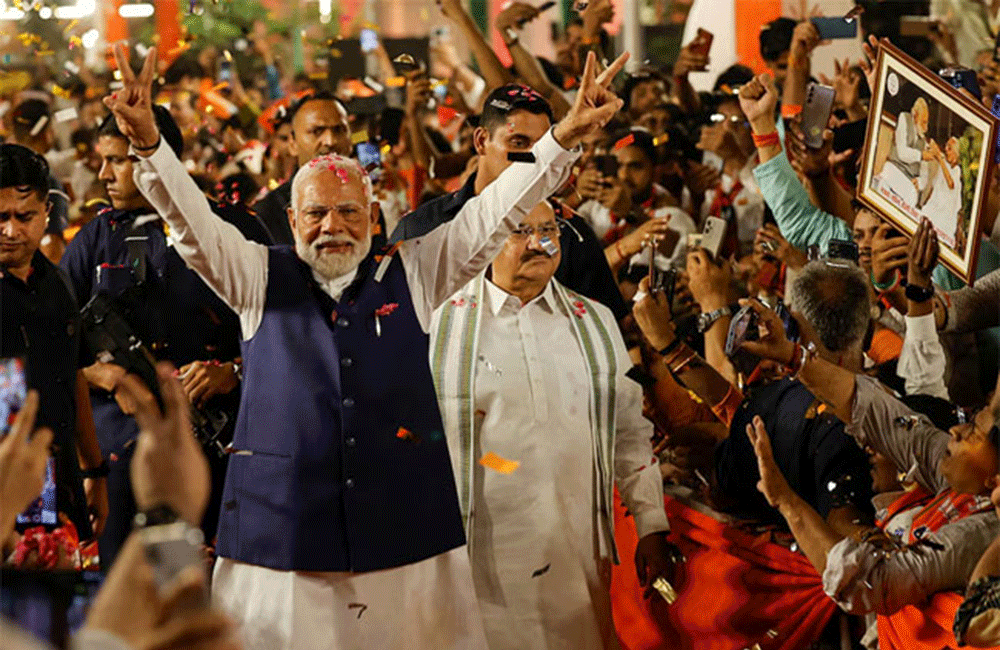
Modi claims victory for his alliance in India’s general election
Prime Minister Narendra Modi claimed victory for his alliance on Tuesday in India’s general election, despite a lackluster performance from his own party as it faced a stronger than expected challenge from the opposition, which pushed back against his mixed economic record and polarizing politics.
Modi told a crowd at his party’s headquarters that his National Democratic Alliance will form the government for the third consecutive time, saying Indian voters had “shown immense faith” both in his party and the coalition alliance.
“Today’s victory is the victory of the world’s largest democracy” he said.
Still, for the first time since Modi’s Bharatiya Janata Party swept to power in 2014, it appeared unlikely it would secure a majority on its own, and the prime minister would instead need the support of the other parties in his coalition for his third five-year term in the world’s largest democratic exercise.
That would be a stunning blow for the 73-year-old, who had hoped for a landslide victory. Despite the setback, many of the Hindu nationalist policies he’s instituted over the last 10 year remain locked in place.
In the face of surprising numbers, the opposition claimed they had also won a victory of sorts, with the main opposition Congress party saying the election had been a “moral and political loss” for Modi.
“This is public’s victory and a win for democracy,” Congress party President Mallikarjun Kharge told reporters.
In his 10 years in power, Modi has transformed India’s political landscape, bringing Hindu nationalism, once a fringe ideology in India, into the mainstream while leaving the country deeply divided.
His supporters see him as a self-made, strong leader who has improved India’s standing in the world. His critics and opponents say his Hindu-first politics have bred intolerance and while the economy, the world’s fifth-largest and one of the fastest-growing, has become more unequal.
The counting of more than 640 million votes cast over six weeks was expected to last into the night.
Some 12 hours into counting, partial tallies reported by India’s Election Commission showed Modi’s BJP was ahead in 114 constituencies and had won 126 of 543 parliamentary seats. The Congress party led in 45 constituencies and had won 54.
A total of 272 seats are needed for a majority. In 2019, the BJP won 303 seats, while they secured 282 in 2014 when Modi first came to power.
The BJP-led National Democratic Alliance led in 147 constituencies and won 139, according to the partial count. The Congress party is part of the INDIA alliance, which led in 131 constituencies and had won 99.
The Election Commission does not release data on the percentage of votes tallied.
Exit polling from the weekend had projected the NDA to win more than 350 seats. Indian markets, which had hit an all-time high on Monday, closed sharply down Tuesday, with benchmark stock indices — the NIFTY 50 and the BSE Sensex — both down by more than 5%.
For Payal, a resident of the northern city of Lucknow who uses only one name, the election was about the economy and India’s vast number of people living in poverty.
“People are suffering, there are no jobs, people are in such a state that their kids are compelled to make and sell tea on the roadside,” Payal said. “This is a big deal for us. If we don’t wake up now, when will we?”
If Modi wins, it would only be the second time an Indian leader has retained power for a third term after Jawaharlal Nehru, the country’s first prime minister.
But if his BJP is forced to form a coalition, the party would likely “be heavily dependent on the goodwill of its allies, which makes them critical players who we can expect will extract their pound of flesh, both in terms of policymaking as well as government formation,” said Milan Vaishnav, director of the South Asia Program at the Carnegie Endowment for International Peace.
“This would be truly, you know, uncharted territory, both for Indians as well as for the prime minister,” he added.
Before Modi came to power, India had coalition governments for 30 years. His BJP has always had a majority on its own while still governing in a coalition.
Extreme heat struck India as voters went to the polls. While temperatures were somewhat lower on Tuesday, election officials and political parties still hauled in large quantities of water and installed outdoor air coolers for people waiting for results.
Outside BJP party headquarters in New Delhi, supporters banged drums and bells as the counting was underway. Earlier, party workers performed a Hindu ritual.
Meanwhile, supporters at the Congress party headquarters appeared upbeat and chanted slogans praising Rahul Gandhi, the face of the party’s campaign.
Speaking at the press conference with party president Kharge, Gandhi said he saw the figures as a message from the people.
“The poorest of this country have defended the constitution of India,” he said.
Over 10 years in power, Modi’s popularity has outstripped that of his party’s, and turned a parliamentary election into one that increasingly resembled a presidential-style campaign. The result is that the BJP relies more and more on Modi’s enduring brand to stay in power, with local politicians receding into the background even in state elections.
“Modi was not just the prime campaigner, but the sole campaigner of this election,” said Yamini Aiyar, a public policy scholar.
The country’s democracy, Modi’s critics say, is faltering under his government, which has increasingly wielded strong-arm tactics to subdue political opponents, squeeze independent media and quash dissent. The government has rejected such accusations and say democracy is flourishing.
And economic discontent has simmered under Modi. While stock markets reach record-highs and millionaires multiply, youth unemployment has soared, with only a small portion of Indians benefitting from the boom.
As polls opened in mid-April, a confident BJP initially focused its campaign on “Modi’s guarantees,” highlighting the economic and welfare achievements that his party says have reduced poverty. With him at the helm, “India will become a developed nation by 2047,” Modi repeated in rally after rally.
But the campaign turned increasingly shrill, as Modi ramped up polarizing rhetoric that targeted Muslims, who make up 14% of the population, a tactic seen to energize his core Hindu majority voters.
The opposition INDIA alliance has attacked Modi over his Hindu nationalist politics, and campaigned on issues of joblessness, inflation and inequality.
But the broad alliance of over a dozen political parties has been beset by ideological differences and defections, raising questions over their effectiveness. Meanwhile, the alliance has also claimed they’ve been unfairly targeted, pointing to a spree of raids, arrests and corruption investigations against their leaders by federal agencies they say are politically motivated. The government has denied this.
In the financial capital of Mumbai, Mangesh Mahadeshwar was one of many surprised by how the election was playing out.
“Yesterday we thought that the BJP would get more than 400 seats,” said 52-year-old who was keeping an eye on the results at the restaurant where he works. “Today it seems like that won’t happen – people haven’t supported the BJP so much this time.”
Source: Associated Press
--Agencies
Page 11 of 51